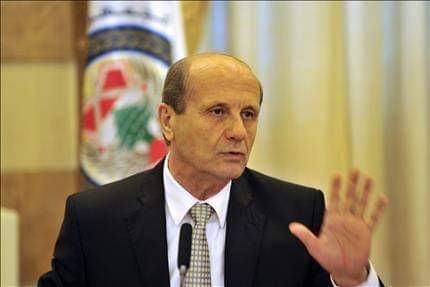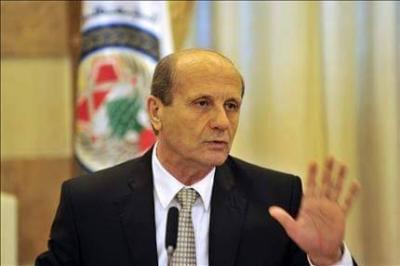Former Interior Minister Marwan Charbel, whose name is suggested for the presidency as a consensus candidate, noted that "some are handling the presidential election contrary to the constitutional rule that mandates the parliament to elect a president within a maximum of two months, and no less than one month from the end of the president's term." He stated that "the talk about this group or that bloc's ability to disrupt the election session is irresponsible and has no connection to the constitution or democratic work. The parliament is obligated to elect a president, either through an agreement among political forces or through a democratic session where the one who receives the two-thirds majority in the first round and the absolute majority in subsequent rounds wins."
In an interview with "Al-Anbaa Al-Kuwaitia," as part of a piece by journalist Zeina Tabara, Charbel pointed out that "the game of disruption is a big adventure that could lead the country towards a grave danger, whose beginnings we may know but whose ends we do not." He warned against "pushing towards a vacancy in the presidency, regardless of the excuses of this group or that, because the cost in the current circumstances, especially economically, will be greater than what the state can bear, starting with a complete and rapid collapse of the national currency against the US dollar, and not ending with barricades returning to the streets, but this time between the hungry people and the political authority, especially since the money syndicates controlling the dollar exchange rate in the black market are ready and awaiting the zero hour to finalize what remains of the purchasing power of the lira, aiming to increase their stockpile of hard currency."
Additionally, Charbel emphasized that "the parliament, regardless of the political calculations of any of the parties, must pull the country from the jaws of the dragon by electing a president within the constitutionally determined timeframe without any delay; otherwise, everyone will bear responsibility before God and then history for the inevitable explosion."
In response to a question, he confirmed that "the issue is not about the president's qualifications, but rather about understanding, consensus, and harmony between Baabda, Ain al-Tineh, and the government palace," indicating, for example, that "electing a sovereign president in every sense of the word does not mean, according to the Taif Agreement, that this sovereign president becomes capable of implementing his presidential program alone on the basis of who wants and who does not. The Taif Agreement divided powers equally between the President of the Republic, the Speaker of the Parliament, and the Prime Minister, to ensure they remained interconnected in a 'troika' working for the benefit of the country and not for dividing the state and shares as happened during the era of the late President Elias Hrawi."
In other words, Charbel pointed out that "as serious as the Lebanese illness is, its cure is quite simple, which is a common understanding between the three presidents to set aside private, personal, and party interests and to begin building the ideal state that the Lebanese dream of."




